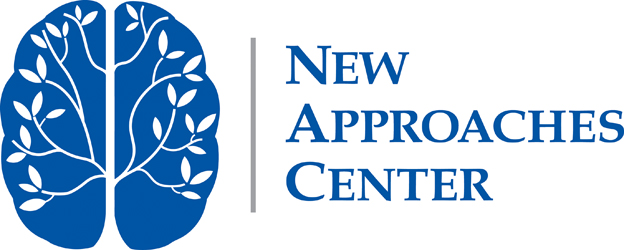Neuropsychology
What is neuropsychology?
Neuropsychology is the study of brain-behavior relationships. Clinical neuropsychologists conduct detailed assessments to assist in the diagnosis of brain disorders and to facilitate effective treatment planning. In addition, neuropsychologists make recommendations to help patients reach their education or vocational goals. At New Approaches Center our neuropsychologists not only help clarify potential diagnoses, but determine which skills and strategies will be most effective to optimize overall brain function and foster general well-being.
What is evaluated during a neuropsychological assessment?
A neuropsychological examination can be used to evaluate various aspects of brain functioning. These may include:
- General intellect
- Post-Concussional Disorder
- Attention (the ability to concentrate for an extended period)
- Language skills (understanding instruction and communicating ideas)
- Executive skills (organization, planning, impulse control, flexibility)
- Learning and memory
- Visuo-spatial skills (the ability to find your way around in a new environment, recognize patterns and put things together)
- Motor skills (dexterity, coordination)
- Behavioral and emotional functioning
Who can benefit from a neuropsychological assessment?
Referrals to a neuropsychologist are often made by healthcare professionals or educators and can be useful in determining treatment and management approaches, such as classroom placement for students who have learning issues. Some of the common reasons a patient or student is referred to New Approaches Center for a neuropsychological assessment are:
- Memory problems (including dementia and Alzheimer’s disease)
- Dyslexia or learning problems
- Trouble concentrating (including ADHD)
- Changes in behavior or emotional control
- Difficulty with solving problems
- Trouble communicating or understanding others
- Difficulty finding the right words
- Recent brain injury, tumor or stroke
What is involved in a neuropsychological assessment?
The initial interview is dedicated to establishing initial assessment and treatment goals and permits our clinicians to answer questions you or your family member may have about our services. Next, you will be asked to complete a series of tasks designed to assess cognitive skills such as: attention, learning and memory, processing speed, language, and executive functioning. Some tasks will be complex; others will be more easy.
What preparation does a neuropsychological assessment require?
Get a good night’s sleep before the examination, and be sure to bring any hearing devices or eyeglasses you may need to complete the tasks, as well as, any previous test results and related medical records. Also, coordinate medication dosage times with our neuropsychologist prior to the examination.
Resources and Coping Strategies

Neuro-strategies for School Aged Children
New Approaches School Based Program – Neuro-strategies for School Aged Children When my son was 5 years old, he was put on his first behavioral plan in his kindergarten class and was

Sensitivity To Light
Sensitivity To Light Problem – Sensitivity to light is a common problem in concussion. People go from their home or office and go into the bright outside light and suddenly their headache

MEMORY STRATEGY – How to keep from losing car keys.
MEMORY STRATEGY Problem – Many people report a frequent problem of losing car keys. They put the keys down in the house but can’t remember where they put them. This then leads
